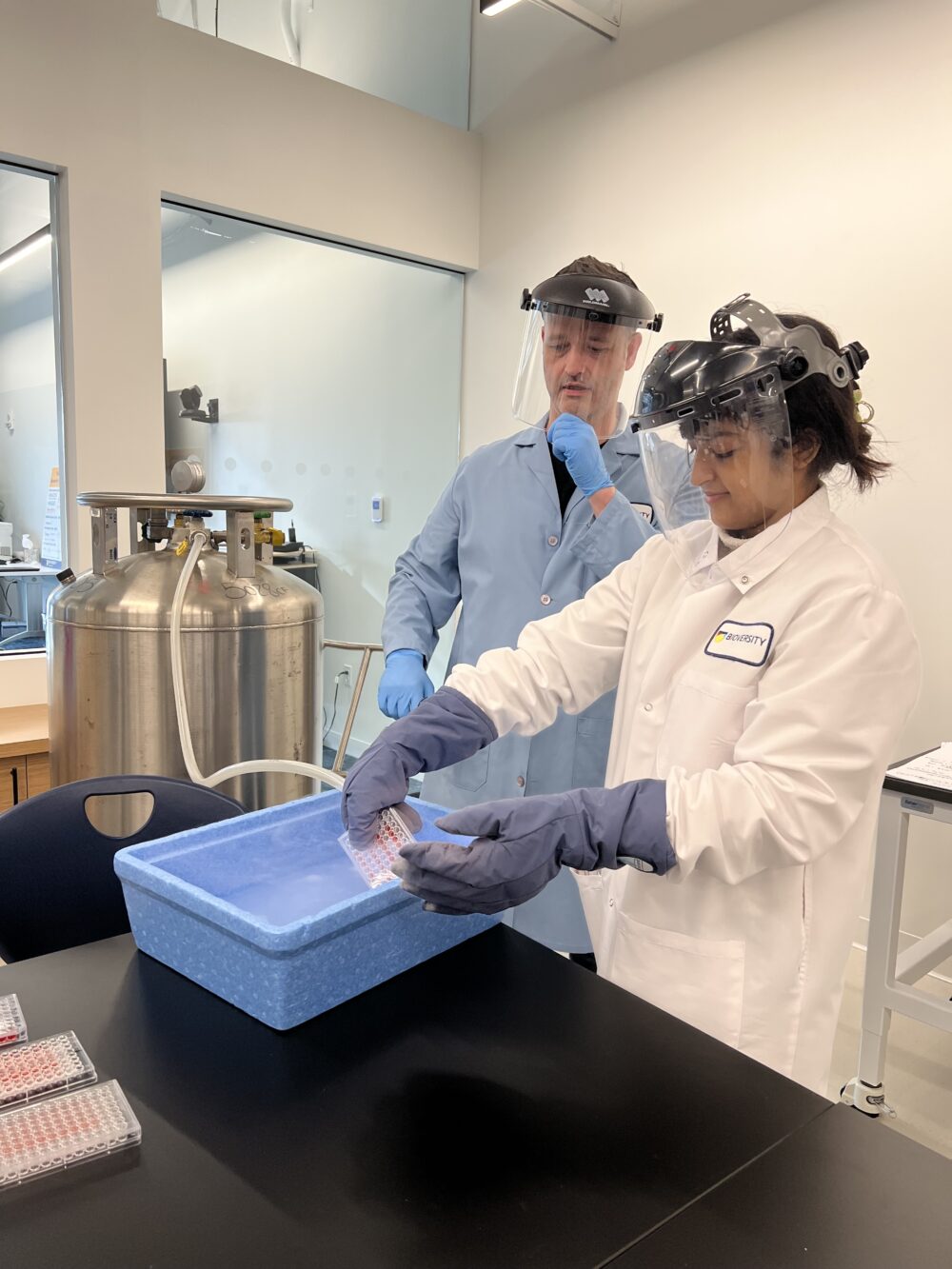What We Teach
Bioversity offers two different short-term certificate training programs out of our training centers in Boston and in Lowell. In 2026, we will be running five training cycles in Boston and two in Lowell. Applications are always open for people who are seeking a new career path.

Biotech Career Foundations
Bioversity’s core program is an eight-week training that equips students with the technical and professional skills necessary to be work-ready upon graduation in a range of entry-level scientific operations roles.
Core Competencies
A participant completing this program will achieve the following competencies:
- Cultivate a professional presence including a new resume and job interview skills
- Demonstrate reliability and time management through consistent attendance
- Understand the biotech industry and its career opportunities
- Familiarity with basic science concepts and equipment associated with lab work
- Apply environmental health and safety standards in a lab
- Understand hazardous waste storage and disposal concepts
- Exposure to inventory management
- Hands-on gas cylinder safety and handling
- Modeling professional behavior
- Practice effective communication skills
Specifically, students will acquire these core technical skills:
Laboratory Techniques & Equipment Use
- Aseptic laboratory techniques
- Solution and buffer preparation, Molarity, dilutions, and unit conversions
- Precise measurement with micropipettes, scales, and pH meters
- Handling and safety protocols for CO₂, liquid nitrogen, and dry ice
- Use of essential lab equipment: pH meters, spectrophotometers, stirring plates, fume hoods
Documentation, Compliance & Safety
- Creation of Standard Operating Procedures (SOPs)
- Familiarity with GMP (Good Manufacturing Practice) and Good Documentation Practices (GDP)
- Knowledge of data integrity standards and sterile lab practices
- Laboratory safety protocols and emergency equipment identification
Data & Team-Based Problem Solving
- Data entry, management, and analysis using Excel and digital tools
- Collaboration and critical thinking in lab-based and real-world case scenarios
- Exposure to AI tools for team-based problem solving and technical analysis
Laboratory Inventory Management
- Categorize and manage various types of laboratory inventory, including consumables, chemicals and supplies.
- Monitor inventory levels, establish accurate reordering points, and maintain adequate safety stock.
- Design and maintain organized laboratory inventory spaces to enhance accessibility and operational workflows.
- Assess order requests, identify discrepancies between inventory receipts and purchase orders, and take corrective actions.
Students who successfully complete this eight-week program will be awarded a Certificate of Completion from Massachusetts College of Pharmacy and Health Sciences and Bioversity (in Boston) and from UMass Lowell and Bioversity (in Lowell). To earn the certificate, participants will need to pass a series of assessments woven throughout the program.
Foundations of Biomanufacturing
Bioversity has partnered with MCPHS and Moderna to develop a six-week certificate training program that will prepare graduates for entry-level biomanufacturing roles, including traditional drug product and drug substance manufacturing as well as other roles in GMP environments.
Graduates of this program will achieve the following competencies:
- Understanding the biomanufacturing industry and its career opportunities
- Professional skill development including workplace etiquette, computer literacy, communication, etc.
- Good Documentation Practices, including following standard operation procedures (SOPs)
- Lab math such as unit conversion, dilution, molarity, calculations
- Clean room/sterilization practices such as gowning, equipment sterilization, use of autoclave, etc.
- Culture techniques such as cell, bacterial, aseptic technique, etc.
- Overview of assays and protein purification
- Overview of product classes including cell and gene therapy, biopharmaceuticals, mRNA, vaccine production
- Quality and regulatory practices
- Equipment and process such as basic process monitoring, feedback, and control loop systems


 Bioversity
Bioversity